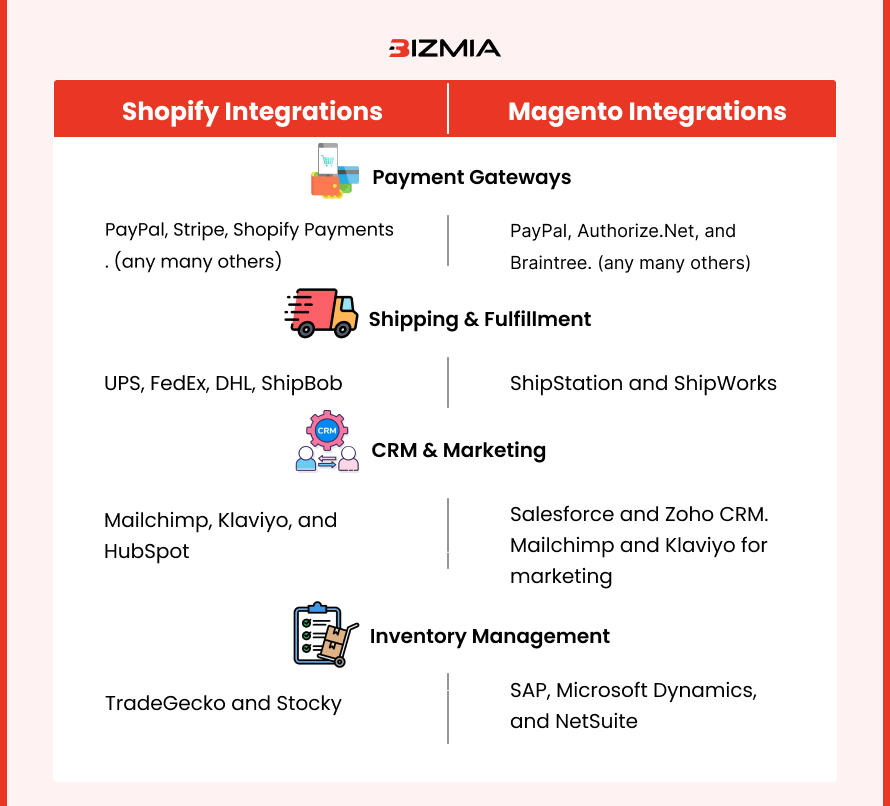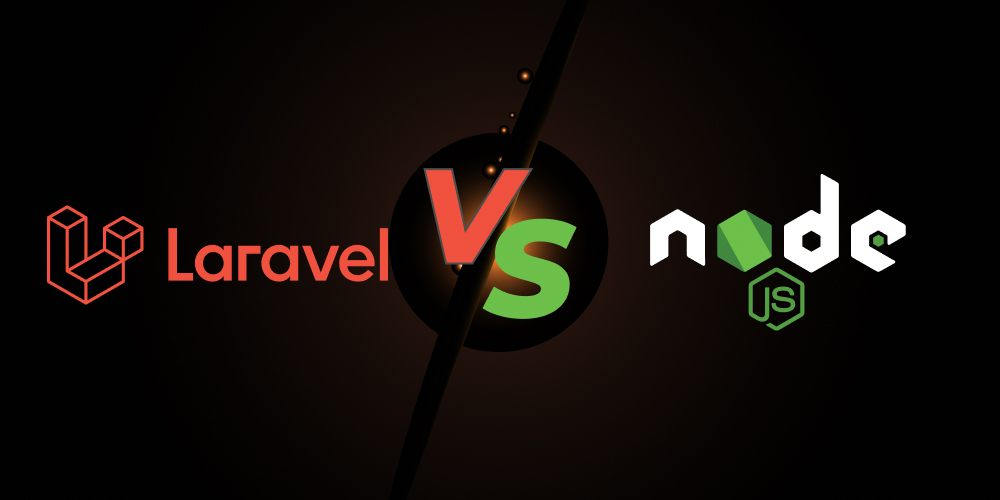The two names that come to mind when we talk about top eCommerce platforms include Shopify and Magento. However, the rivalry between these two platforms has led to the discussion of Shopify vs Magento.
Each of these platforms has its own benefits, disadvantages, and an edge over the other. According to recent reports, approximately 144,477 Magento 1 & 2 stores are live on the internet. And, Shopify has around 2.92 million active stores. But the number of users/stores does not determine which is the best for you.
So, in this guide, we discuss the comparison between Shopify and Magento, laying out the details to help you make the final decision.
What is Shopify?
It is a leading eCommerce platform that enables businesses of all types and scales to create, manage, and run online stores with ease. Users have a wide range of features such as customizable templates, hundreds of themes, analytics, integrated payment gateways, and inventory management. Being a cloud-based platform, it has become a popular choice for businesses of all sorts and sizes due to its user-friendly interface and scalability.
What are the pros and cons of Shopify?
The pros and cons of Shopify are as follows:
| Pros | Cons |
|---|---|
| User-Friendly: Easy to set up and manage, even for beginners. | Limited Customization: Customization options are more restricted compared to open-source platforms like Magento. |
| All-in-One Solution: Includes hosting, security, and updates, making it a hassle-free experience. | Transaction Fees: If you’re not using Shopify Payments, transaction fees can add up. |
| App Marketplace: Access to a wide range of apps for added functionality. | Cost: Monthly fees can get pricey, especially with additional app and theme purchases. |
| Mobile-Friendly: Shopify themes are designed to be responsive, ensuring a great user experience on any device. | Scaling Limits: While scalable, Shopify may not handle very complex or large-scale operations as efficiently as other platforms. |
| 24/7 Support: Shopify offers around-the-clock customer service through various channels. | Less Control Over Hosting: With Shopify being hosted, you have less control over your server settings and performance. |
What is Magento?
Another popular and powerful open-source eCommerce platform is Magento, and it is designed and targeted for businesses that look for high levels of customization and control. The best features of Magento are flexibility, scalability, extensive third-party integrations, robust and advanced tools, multi-store capabilities, and support for large-scale operations.
What are the pros and cons of Magento?
The pros and cons of Magento are as follows:
| Pros | Cons |
|---|---|
| Highly Customizable: Offers complete control over both front-end and back-end, allowing for a tailored eCommerce experience. | Complex Setup: Requires technical expertise to install, configure, and maintain. |
| Scalable: Ideal for large businesses with complex needs and high traffic. | Ongoing Maintenance: Regular updates, security patches, and custom development require continuous attention. |
| Open Source: Magento Open Source is free to use, giving businesses flexibility in how they build their store. | Costly: Magento Commerce and Magento Commerce Cloud come with significant licensing fees. |
| Robust Features: Includes advanced features like multi-store management, complex product catalogs, and powerful SEO tools. | Hosting Costs: You need to arrange and pay for your own hosting, which can be expensive for high-performance needs. |
| Large Community: A vast network of developers, partners, and resources for support. | Steep Learning Curve: Requires a good understanding of development, especially for customization and troubleshooting. |
Key Factors to Discuss in Shopify vs Magento
When discussing Shopify vs Magento comparison, there are certain factors that need to be evaluated such as pricing, support, features, functionalities, third-party integrations, and many other factors that will be discussed below.
Pricing: Shopify vs Magento
Shopify offers four pricing plans i.e., basic, Shopify, advance, and Shopify plus. If a customer chooses to pay on a yearly basis, then the basic Shopify plan starts from $19 per month, Shopify plan at $49 per month, advanced $249 per month, and Shopify Plus starts at $2,300 per month.
Here is a table for Shopify pricing plans to help you understand and compare the packages:
| Plan | Pricing | Card Rates | Standout Features | Support |
|---|---|---|---|---|
| Basic | $19/month (billed yearly) | 2% (3rd-party payment providers) | – 10 inventory locations – Localized global selling (3 markets) – POS Lite | 24/7 chat support |
| Shopify | $49/month (billed yearly) | 1% (3rd-party payment providers) | – 10 inventory locations – Localized global selling (3 markets) – 5 additional staff accounts – POS Lite | 24/7 chat support |
| Advanced | $299/month (billed yearly) | 0.6% (3rd-party payment providers) | – Custom reports and analytics – Localized global selling (3 markets, add markets for $59/month) – 15 additional staff accounts – 10x checkout capacity – POS Lite | Enhanced 24/7 chat support |
| Plus | $2,300/month (on 3-year term) | Competitive rates for high-volume merchants | – Custom reports and analytics – 200 inventory locations – Localized global selling (50 markets) – Unlimited staff accounts – 40x customizable checkout capacity – 200 POS Pro locations with Shopify Payments | Priority 24/7 phone support |
If we speak of Magento, the Magento Open Source is completely free to download and use, making it an accessible option for businesses looking to build a custom eCommerce platform.
For those seeking more advanced features, Magento Commerce offers licensing plans that start at $22,000 annually, with costs increasing based on your annual gross revenue. If you opt for Magento Commerce Cloud, the licensing fees begin at $40,000 annually, also tied to your revenue.
In addition to these costs, businesses should factor in expenses for hosting, domain registration, SSL certificates, custom design, development work, extensions, and marketing, which can add anywhere from $10,000 to $50,000 or more each year, depending on the scale and complexity of the project.
Even though Magento does not have a native payment solution. But it offers more than 300 plugins and extensions such as PayPal, Stripe, and Amazon payments. If you are wondering about the transaction fees, then it depends on the payment processor you choose. Let’s see below details for an example:
PayPal: 3.49% + $0.49 (U.S.) or 5% (international)
Stripe: 2.9% + $0.30 per transaction
If you want to understand the key differences between Shopify Plus vs Magento, then head out to our social media post:
https://www.linkedin.com/feed/update/urn:li:ugcPost:7197262143803518976/?actorCompanyId=12981727
Shopify vs Magento Customization
Customization is the number one priority for SMBs as well as enterprises. The level of customization is essential so that in future a business can expand their features and functionalities easily.
They both offer very different experiences but there are some limitations to each of them. Shopify provides a user-friendly interface and also has a wide range of pre-built themes and apps that users can take advantage of to customize their stores without requiring any technical expertise. But there are limitations in Shopify as users do have the option for advanced customizations due to its controlled ecosystem.
On the other hand, Magento offers unlimited customized for the users even at enterprise level. The users on Magento can customize both the front end and backend that enables business to create a highly tailored eCommerce experience.
So, if we have to conclude for Shopify vs Magento customization, then Magento offers much more customization than Shopify.
Shopify vs Magento Integrations
Shopify and Magento both offer several integrations so that users can enhance their store features and functionalities and provide a seamless user experience.

Let’s discuss Shopify first. It offers a wide range of pre-built integrations that merchants can use and connect with their stores. These integrations cover areas like payment gateways, marketing tools, shipping services, and inventory management. Moreover, another advantage for the users is that Shopify’s App Store contains thousands of apps that enable easy plug-and-play integrations.
So, for example, there are over 100 payment gateways, for instance PayPal, Stripe, and its own as well i.e., Shopify Payments. In addition to that, it has native integrations with carriers like UPS, DHL, and FedEx for automating the processes. You can also utilize the CRM and Marketing integrations like MailChimp, etc., to optimize your store for marketing strategy and conversions.
In Magento, there is far more flexibility than Shopify for third-party integrations. However, adding third-party integrations in an open-source e-commerce platform i.e., Magento requires technical and web development expertise. You can hire Magento 2 developers to get robust third-party integrations seamlessly and enhance store’s functionalities.
Speaking of payment gateways, Magento has a variety of payment options, including PayPal, Authorize.Net, and Braintree. If a merchant wants more customization, then developers can also build custom payment gateways tailored to a business’s specific needs. For instance, a custom gateway for cryptocurrency payments can be added using Magento’s open-source features.
You can also integrate your Magento store with third-party CRMS and marketing software such as Salesforce and Zoho CRM, Kalyvio, and MailChimp.
Shopify vs Magento: Apps and Addons
Shopify and Magento have a wide range of apps and add-ons, plugins and third-party applications for enhancing features and functionality to your store.
If we talk about it, Shopify has a gated app store in which technology app partners appear. You will find a huge range apps that can significantly improve your on-site features, loyalty schemes, sales features, accountancy, email marketing, reviews, and more. The total count of Shopify apps is around 8000 and more are coming. If you want to get custom apps developed, you can do it easily in Shopify.
Speaking of Magento, it has a similar app for applications, plugins, and addons that is known by the name of Adobe Commerce Extension Marketplace. It has over 4k extensions that can be used to enhance the functionality of your Magento store. However, to build custom apps, you will need technical developer assistance.
Shopify vs Magento: AI Tools
Both eCommerce platforms Shopify and Magento offer various AI tools that provide great help in enhancing your store features and functionalities. The top Shopify AI tools include ChatGPT, ClickUp, Bazar Voice, and similar tools. For Magento, standout AI tools include the ChatGPT AI Content Generator for Magento 2 and the ChatGPT SEO Optimizer AI, among others.
Shopify vs Magento: Content Management Systems
When comparing Shopify vs Magento, there is a wide difference between both of them based on flexibility, ease of use, requirement of technical assistance, and features.
Shopify offers a user-friendly CMS with drag-and-drop feature that makes it easier to use for the beginners as well as intermediate and experienced users. For tips on getting the most out of Shopify’s CMS, check out our guide on Shopify success secrets and practices for eCommerce development. In addition to that, Shopify includes built-in blogging, product management, and SEO tools, making it a great all-in-one platform for straightforward content management.
If we talk about customizations, Shopify comes with limitations. There is just enough number of customizations you can do as compared to Magento.
On the other hand, Magento is highly flexible and provides great control over the content layout and design but requires technical knowledge or developer support to maximize its potential.
It offers widgets as well such as custom content blocks, dynamic widgets, and third-party integrations. So, if you want a robust content management system that offers customizations and can help you expand it as per your requirements then Magento is the winner. But if you want a pre-built content management system and you do not require to bring a high number of modifications to it, then Shopify would be the best choice to make.
Shopify vs Magento: Development and Coding
Shopify is a fully-hosted platform which means that you don’t need to worry about server setup, maintenance, or technical configurations. You can say Shopify is a low-code platform where you only need to work on coding when bringing customizations to your eCommerce store. You might need to leverage Shopify development services to bring customized features and enhance the customer experience.
Magento requires technical assistance, coding, and development to bring the customizations to your store. Even though its open-source version is free, and self-hosted but for customizing your eCommerce store, it needs technical expertise and resources for setup, development, and maintenance.
You should choose Shopify if you need simplicity and easy setup. However, if you want to go on to an advanced level of customization, then Magento would be the right choice.
Shopify vs Magento: Payment Gateways
Shopify supports over 100 payment gateways, including popular options like PayPal, Stripe, and Authorize.Net. It also has its own payment processor, Shopify Payments, which eliminates transaction fees (except credit card fees) and simplifies the setup process. However, using third-party payment gateways may incur additional transaction fees, which can be a drawback for some businesses.
Now let’s discuss Magento. It offers even greater flexibility, supporting nearly any payment gateway you choose. With its open-source nature, you can integrate custom payment solutions tailored to your business needs. Unlike Shopify, Magento doesn’t impose transaction fees, but you’ll need technical expertise to configure and manage some gateways.
However, you must consider a few factors such as ease of setup (only in Shopify), transaction fee (Shopify charges, Magento does not), and custom payment options (Magento is ideal, Shopify offers less customization options).
We can say that Shopify offers convenience with its native payment solution and straightforward integration. Magento, on the other hand, provides unmatched flexibility for businesses with complex payment requirements.
Magento vs Shopify: Key Feature Comparison Main Table
Consider the table to compare Magento vs Shopify on a major level:
| Features | Magento | Shopify |
|---|---|---|
| Open source | ✔️ | ❌ |
| Hosting included | ❌ (But ✔️ for Adobe Commerce Cloud) | ✔️ |
| Unlimited bandwidth | ❌ | ✔️ |
| Multi-store management | ✔️ | ❌ |
| Customizable themes | ✔️ | ✔️ |
| SEO tools | ✔️ | ✔️ |
| Mobile optimization | ✔️ | ✔️ |
| Third-party integrations | ✔️ | ✔️ |
| Built-in payment gateway | ❌ | ✔️ (Shopify Payments) |
| Over 100 payment gateways | ✔️ | ✔️ |
| Inventory management | ✔️ | ✔️ |
| Order management | ✔️ | ✔️ |
| Abandoned cart recovery | ✔️ | ✔️ |
| Product reviews | ✔️ | ✔️ |
| Discount and promotion tools | ✔️ | ✔️ |
| Analytics and reporting | ✔️ | ✔️ |
| Multi-currency support | ✔️ | ✔️ |
| Multi-languages support | ✔️ | ✔️ |
| Custom URL structures | ✔️ | ❌ |
| B2B features | ✔️ | (limited) |
| Scalability | ✔️ | ✔️ |
| Customer segmentation | ✔️ | ❌ |
| Content staging | ✔️ | ❌ |
| Automated marketing tools | ✔️ | ✔️ |
| Social media integration | ✔️ | ✔️ |
| App Marketplace | ✔️ | ✔️ |
| Free SSL certificate | ❌ | ✔️ |
| PCI-DSS compliant | ✔️ (not applicable to Magento Open Source) | ✔️ |
| Built-in fraud protection | ✔️ | ✔️ |
Conclusion: Which one to choose in Shopify vs Magento?
Shopify and Magento are both the top e-commerce platforms. Shopify is an ideal choice for beginners and SMBs whereas Magento is an ideal platform for enterprises and those businesses who in growing exponentially and want to expand their business operations. With Shopify you can get an easy setup with many amazing features and Magento provides greater flexibility and scalability.
Hire Developers for Your Store from Bizmia
Are you looking to take your Shopify or Magento store to the next level? Our experience with Magento and Shopify developers enables you to scale your business by adding functionalities, features, and user experience that is parallel to none.
Book a meeting with us today and see your store’s sale soaring.
Frequently Asked Questions
Which platform is more suitable for small businesses: Shopify or Magento?
If you want to make limited customizations and want to go with a pre-built setup rather than having full-fledged technical assistance, then Shopify is the most suitable choice for small businesses. Magento requires technical assistance from web developers and is the best enterprise.
Can Magento or Shopify handle high-traffic eCommerce websites better?
If you have low traffic on your website, then Shopify is the best. It can also handle high traffic but there are limitations on advanced customizations. However, Magento would be a lot better than Shopify for high-traffic websites as it offers scalability and customization capabilities.
Which platform is more cost-effective: Shopify or Magento?
It depends on the nature of your business, sales, and other key factors. Shopify has fixed subscription plans which make costs predictable, but the expense can increase with the additional apps.
Magento is open-source, and this version is free for the users. But the hosting, development and maintenance costs can add up and increase the budget.
How do Shopify and Magento compare in terms of SEO capabilities?
Both platforms have strong SEO capabilities and tools, but Magento has more advanced and customizable SEO features.












